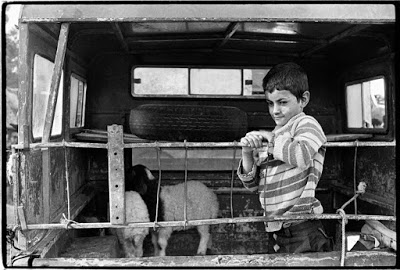I returned to a home I never knew
 |
| Najib Joe Hakim 3 October 2019 |
It may seem odd to return to a place one has never been. But as an American of Palestinian origin, that is precisely the feeling I had when I “returned” to Palestine in 1978 as a recent college graduate.
I applied to the Hebrew University’s foreign student program, and they accepted me based on my straightforward premise: “My background is Palestinian Arab … My objective in going to Israel is to observe the Middle East situation from the Israeli perspective.” I went with high hopes and bags full of naivete.
My family was not pleased. My uncle remarked: “Do you think you are going there to play Kissinger?”
My 18 months in the country hardly caused a ripple. I don’t believe that any of the Israelis I spoke with, got to know, or befriended went on to become a “mensch” towards Palestinians.
My presence there did, however, provide the only opportunity for my mother to return to the country, see her old home in Haifa and meet relatives not seen since her exile in 1948.
Unlike the fog of memory, these images feel solid, like a stone. Although they may appear timeless, or from another era, they are not nostalgic.
They show Israelis and Palestinians living beneath the banner headlines of the times: Egyptian President Anwar Sadat’s visit to Jerusalem, US President Jimmy Carter’s Camp David accords, the origins of the Israeli settler movement and of course, the Iranian Revolution.
The text that accompanies these photographs are adapted excerpts from a journal I kept at the time. Today it reads like a recently delivered collection of letters that I had written to my future self.
My work over the last 10 years has focused primarily on remembering and documenting. Both are part of the Palestinian struggle to regain control of our narrative.
Najib Joe Hakim is a San Francisco-based photographer whose two previous projects Home Away from Home and Born Among Mirrors also focus on the Palestinian diaspora experience. He is currently a Political Art Fellow at the Yerba Buena Center for the Arts.
He looks but does not see.
.ينظر ولكنه لا يرى
He hears but does not understand.
.مثل الأطرش في الزفة
Ask about the neighbor before the house.
.اسأل عن الجار قبل الدار
The old terrorist Menachem Begin, now prime minister, wants to give the Palestinian people autonomy, but not over their land! Where do they come up with this stuff? The very essence of autonomy is zapped when the “autonomous” people cannot rule over the land they live on.
Shabbat is almost here again. People are doing their last-minute shopping for their Sabbath meal. Tonight, I will be joining new friends for my first Shabbat dinner.
One of the primary reasons I am here is to get to know Israelis. I requested an Israeli roommate and one was assigned to me. I arrived before him. He finally got here at 7 am, while I was still in bed.
I sat up, introduced myself. My roommate looked at me speechlessly, turned and walked out with his bags, never saying a word. I was told by someone in the residence office that he came in yelling that he would not share a room with an Arab. Wow! Is that the way it’s going to be? They always told me that we were the bad guys.
The first two Hebrew expressions I learned I heard very clearly. The first was easy: shalom or “peace,” used as a standard greeting like “hi.” The second was darker. An Israeli student on the campus yelled out, “Aravi tov, Aravi met!” So I asked someone what that meant. “A good Arab is a dead Arab.” Not an expression to forget, for sure.


